03 Oct2019
By JTE Insider

Read the latest JTE Insider blog interview by the Journal of Teacher Education (JTE) editorial team member Lauren Snead. This blog is available to the public, and AACTE members have free access to the articles in the JTE online archives—just log in with your AACTE profile.
This interview features insights from the article “Rethinking Student Teacher Feedback: Using a Self-Assessment Resource With Student Teachers” by Lauren Oropeza Snead and H. Jerome Freiberg. The article was published in the March/April 2019 issue of the JTE.
Q1. What motivated you to pursue this particular research topic?
As a doctoral student in Dr. Jerome Freiberg’s graduate class, I was challenged to self-assess my own teaching by using student feedback. This was an area of growth I had not previously explored and it completely changed the way I looked at my teaching. As I briefly discuss in the article, I had spent many years as a K-12 teacher, where I focused on what administrators thought of me. Up until this point, my teaching evaluations dictated how I taught my class. I based any areas of growth or changes on what the administrators said about my classroom. Now that I look back, I cannot believe how blind I was to all of the potential feedback perspectives in classrooms. Using Dr. Freiberg’s self-assessment resource, the Person-Centered Learning Assessment (PCLA), I realized for the first time that the power for change started with my students. Accessing student feedback gave me a fresh perspective into areas of growth. It was an empowering experience. That experience spurred on my curiosity to dive further into the PCLA.
27 Sep2019
By Katrina Norfleet
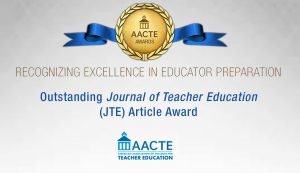
The Outstanding Journal of Teacher Education Article Award is presented annually by AACTE to recognize exemplary scholarship published in the Journal of Teacher Education (JTE) during the last volume year. The journal’s editors, based at Michigan State University, nominate several top articles for consideration, and the AACTE Committee on Research and Dissemination selects the winning paper to receive the award. This award represents one of the nine categories of the annual AACTE Award Program that recognizes excellence in educator preparation.
In the video below, JTE Co-Editor Robert Floden highlights the 2018 AACTE Outstanding Journal of Teacher Education Article Award winner, “Capturing the Complex, Situated, and Active Nature of Teaching Through Inquiry-Oriented Standards for Teaching.” In this article, the authors, Claire Sinnema, Frauke Meyer, and Graeme Aitken of the University of Auckland, identify problems in the design and implementation of teaching standards that widen the divide between theory and practice, and propose an alternative model dubbed Teaching for Better Learning.
12 Sep2019
By Mike Yough and Lynley Anderman
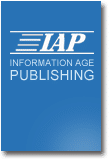 As editors, we are seeking proposals for chapters in an upcoming volume, Teaching to Prepare Advocates, part of the Theory to Practice: Educational Psychology for Teachers and Teaching series.
As editors, we are seeking proposals for chapters in an upcoming volume, Teaching to Prepare Advocates, part of the Theory to Practice: Educational Psychology for Teachers and Teaching series.
In an age where the quality of teacher education programs has never been more important, educators need a fundamental understanding of the principles of human learning, motivation, and development. Each volume in the series will draw upon the latest research to help college instructors select and model essential principles of learning, motivation, and development prepare professionals to work with children and adolescents in diverse learning contexts using asset-based
12 Sep2019
By Middle Tennessee State University and SCORE
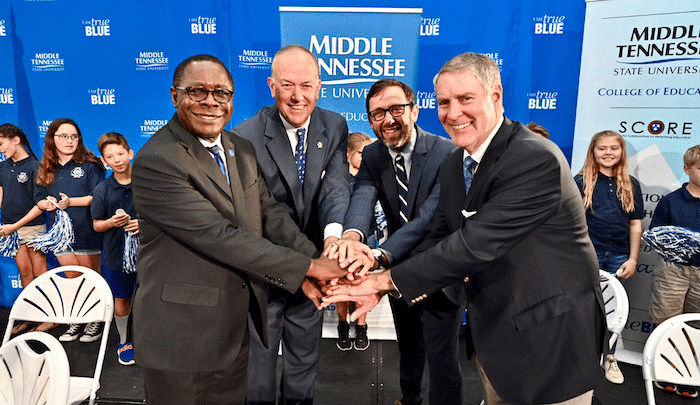
This article and photo originally appeared on the Middle Tennessee State University website and are reprinted with permission.
Middle Tennessee State University announced Wednesday (Aug. 28) a first-of-its-kind partnership focused on bringing research-supported innovations to how the university prepares students to become K-12 teachers.
11 Sep2019
By Katrina Norfleet
The just released 2019 Data Quality Campaign (DQC) National Poll reports that those closest to students—parents and teachers—are eager for leaders to take actions that reflect a bold vision of data use to improve student outcomes in K–12 and beyond. The findings, released on September 10, show that 90% of parents say they need data to understand their child’s progress and help them do their best. Of the teachers who were polled, 86% believe using data is an important part of being an effective teacher.
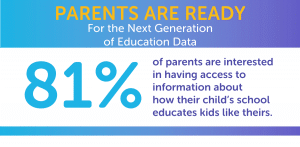
In the brief, Parents are Ready for the Next Generation of Education Data, data show that parents believe student journeys don’t end with K–12. Parents see
30 Aug2019
By Lynn M. Gangone
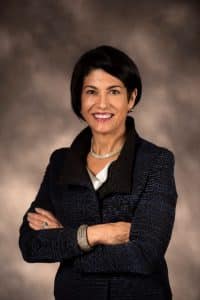 While serving on this year’s (Phi Delta Kappan) PDK Poll Advisory Board, I listened and collaborated with scores of thought leaders in the education ecosystem—The National Education Association, The Learning Policy Institute, The Learning First Alliance, The Gay, Lesbian and Straight Education Network, among others. We determined what approaches to take to quantify, understand, and disseminate the vast amount of information and data garnered from this extremely worthwhile and useful poll. We discussed the results and how they could be utilized to advance 21st century classrooms, its students, and those who lead them.
While serving on this year’s (Phi Delta Kappan) PDK Poll Advisory Board, I listened and collaborated with scores of thought leaders in the education ecosystem—The National Education Association, The Learning Policy Institute, The Learning First Alliance, The Gay, Lesbian and Straight Education Network, among others. We determined what approaches to take to quantify, understand, and disseminate the vast amount of information and data garnered from this extremely worthwhile and useful poll. We discussed the results and how they could be utilized to advance 21st century classrooms, its students, and those who lead them.
What is the importance of the PDK Poll?
This year’s PDK Poll was entitled, “Frustration in The Schools: Teachers Speak Out on Pay, Funding, and Feeling Valued.” The new release is one of several polls PDK has conducted to examine opinions on public education for more than 50 years. The poll, according to PDK, is “a steady reflection of U.S. opinion about public education.” Its results are meaningful because they offer an annual review of one of the most important parts of our society—public schools, and focuses on of some our nation’s most crucial people—teachers. The poll measures opinions on the value of a public-school education and its teachers while giving us a sense of how our schools are supported, or more importantly, how they are not supported. It gives us a hypothetical picture of what the future of the educational world might hold and enlightens us about current issues from the perspective of the public. It informs and helps us contemplate how students are changing and what we, as educators, need to do to support and foster
14 Aug2019
By Jacqueline Rodriguez
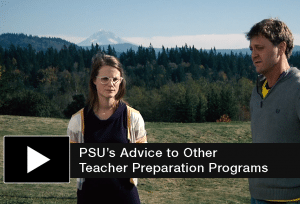 As the student population has diversified so has our understanding of the general education classroom, specifically who we serve in an inclusive setting. Our students with special education services are learning the majority of their grade level curriculum in general education classrooms. This paradigm shift requires effective collaboration between service providers and teachers as well as a deep understanding and application of differentiation to meet the needs of all students.
As the student population has diversified so has our understanding of the general education classroom, specifically who we serve in an inclusive setting. Our students with special education services are learning the majority of their grade level curriculum in general education classrooms. This paradigm shift requires effective collaboration between service providers and teachers as well as a deep understanding and application of differentiation to meet the needs of all students.
For years, the two fields of general education and special education have been siloed. Persistence and partnership is how
13 Aug2019
By Katrina Norfleet

The September/October 2019 issue of the Journal of Teacher Education (JTE) is now available online, while printed copies are arriving in the mail to subscribers around the country. Below is a summary of the articles included in Vol. 70, Issue 4, 2019:
In “Teacher Agency and Resilience in the Age of Neoliberalism,” members of the JTE editorial team, Tonya Bartell, Christine Cho, Corey Drake, Emery Petchauer, and Gail Richmond, address how the articles in this issue provide insights into ways educator preparation programs can support teachers in developing and enacting agency. They discuss how making small shifts or adaptations in everyday teaching practices can create more just and equitable teaching and learning.
In the paper, “Whiteness as a Dissonant State: Exploring One White Male Student Teacher’s Experiences in Urban Contexts,” Stephanie Behm Cross of Georgia State University, Nermin Tosmur-Bayazit of Fitchburg State University, and Alyssa Hadley Dunn of Michigan State University, suggest that Whiteness itself is a dissonant state. The authors argue that
05 Aug2019
By Katrina Norfleet
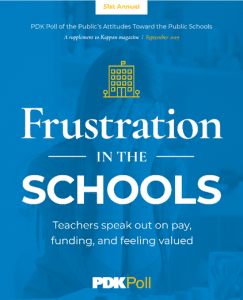 Half of public school teachers have seriously considered leaving the profession in the past few years. Only about half say their community values them a great deal or a good amount, and a majority says that, given the opportunity, they’d vote to go on strike for higher pay, according to the 51st edition of the annual PDK Poll of the Public’s Attitudes Toward the Public Schools released on August 5.
Half of public school teachers have seriously considered leaving the profession in the past few years. Only about half say their community values them a great deal or a good amount, and a majority says that, given the opportunity, they’d vote to go on strike for higher pay, according to the 51st edition of the annual PDK Poll of the Public’s Attitudes Toward the Public Schools released on August 5.
The full results of the PDK Poll are compiled in a report titled Frustration in the schools: Teachers speak out on pay, funding, and feeling valued. This year’s poll has several new features: For the first time in 20 years, PDK included a survey of public school teachers alongside the survey of the general population. They also expanded its sample size by breaking out Asian adults in addition to Black, White, and Hispanic adults. This year, online focus groups of public school parents and public school teachers were included to better understand why Americans responded as they did to the poll questions.
Other notable poll results include the following:
01 Aug2019
By Jacqueline Rodriguez
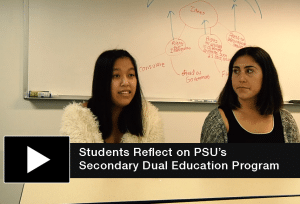 A number of students in Portland State University’s (PSU) Secondary Dual Education Program (SPED) recently reflected on advice they were given before entering the graduate program. “I always want more education than less,” one teacher candidate was advised by a mentor in the field of medicine. The candidate now looks back on her experience in the program with appreciation. “I was ready. I had the resources. I had been in the classroom for two years; it felt natural. I didn’t have the same level of trepidation as some of my first year friends.”
A number of students in Portland State University’s (PSU) Secondary Dual Education Program (SPED) recently reflected on advice they were given before entering the graduate program. “I always want more education than less,” one teacher candidate was advised by a mentor in the field of medicine. The candidate now looks back on her experience in the program with appreciation. “I was ready. I had the resources. I had been in the classroom for two years; it felt natural. I didn’t have the same level of trepidation as some of my first year friends.”
The students who complete the PSU program graduate with a dual endorsement in a secondary education content area and special education. Another candidate reflected on the importance of serving every student in the classroom. His decision to pursue a two-year graduate program in secondary English and special education was an obvious one; it ensured he would be prepared to meet the needs of all students with a range of abilities.
The benefit of being profession-ready is not only valued by the teacher candidates. High school students also note the tremendous advantage they have when a teacher who understands the unique needs of students with IEPs is leading the classroom. In particular, college access traditionally has been stymied for students with significant disabilities. However, one high school student reflected that she has a mentor in her teacher, someone who has guided her toward college-ready curriculum. Learning from their students is another area of mutual benefit expressed by the candidates. The necessity to meet the needs of each student in the classroom is universally acknowledged by candidates, students, and administrators.
To learn more, view the What’s in it for me? video highlighting PSU’s Secondary Dual Education program, part of AACTE’s Research-to-Practice Spotlight Series.
31 Jul2019
By Diane Angelucci
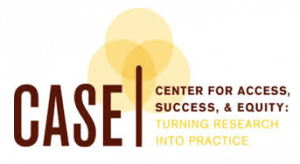 This article originally appeared in Rowan Today and is reprinted with permission.
This article originally appeared in Rowan Today and is reprinted with permission.
Even in the best school districts, obstacles to equal education and opportunities can hide far below the surface
To help districts unearth and address these issues, the Center for Access, Success and Equity (CASE) in Rowan University’s College of Education has forged equity-focused research practice partnerships with several school districts—one of CASE’s three research areas. CASE is establishing research as central to the College of Education in three ways — through partnerships with districts, through grant-funded research, and through the College’s Ph.D. program.
“I can’t speak enough about our experience with CASE,” said Piera Gravenor, superintendent of Delsea Regional School District, which has worked with CASE for the last two years.
26 Jul2019
By Katrina Norfleet
The Teacher Educator national peer-reviewed journal recently shared the top 10 most downloaded articles in the first three months of 2019. The most downloaded article in 2018 was “Current Issues in Teacher Education: An Interview with Dr. Linda Darling-Hammond” with 2,726 downloads. Other popular articles cover a range of topics including multicultural teacher education, perceptions of ELL students, student stress and coping, and teaching reflective practice. The full list of the top 10 articles are included in the table below.
AACTE President and CEO Lynn M. Gangone serves on Editorial Advisory Board of The Teacher Educator, a forum for promoting discussion among educators who seek to challenge existing boundaries in the field. The journal invites AACTE members to submit notable work on current
19 Jul2019
By Katrina Norfleet
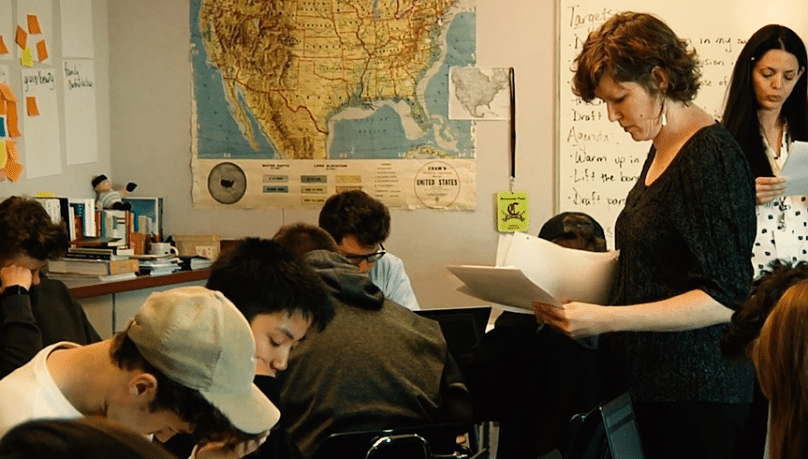
One of the key components of Portland State University’s (PSU) Secondary Dual Education Program is its success in developing and sustaining partnerships with local school districts.
Marvin Lynn, dean of the Graduate School of Education at PSU, shares how the program prepares secondary education teacher candidates to bring content knowledge and “the knowledge that special education teachers have to bare about the learning process and about how to work with these unique populations” to local schools.
Educators like Ana Capac, a special education teacher at Evergreen High School, specifically ask for student teachers from the PSU program because of the mindsets and approaches they bring to the classroom and community. “It is really important that I’m supporting both the student teachers I’m working with on how they are developing this mindset of inclusion, supporting all students, and working within the school to support their colleagues as well,” says Capac.
Andrew Gilford, assistant principal at Clackamas High School, emphasizes this culture shift to more collegial relationships where the PSU teacher candidates and the classroom teachers “speak the same language” and can work together to serve students with disabilities and improve learning outcomes. “Coming from this kind of program and this kind of background, you are immediately an advocate,” adds Rob Parness, special education teacher and former academic coach at Tigard High School.
In discussing the culture shift, Will Parnell, curriculum and instruction department chair at PSU, emphasizes that the program was built based on relationships with the community. “There were local districts that were saying ‘we want special ed teachers that can support students in general ed classrooms’ but they found out that teacher prep programs were not focused on that,” says Susan Bert, assistant professor of practice, special education at PSU. “So there was a need.”
To learn more, view the Developing and Sustaining Partnerships video featuring PSU’s Secondary Dual Education program.
15 Jul2019
By Jane E. West

Congress came back to Washington this week with a boatload of work to do in the short few weeks before the next recess, in August. It could be a long hot summer.
First up: Budget and Funding
When Congress left for July 4 recess, the House had passed almost all of the 12 required funding bills and the Senate had not begun with any of the 12 bills. September 30 marks the end of the fiscal year; without the new spending bills signed into law, a government shutdown will be in the offing. With Congress scheduled to be in recess most of August, the pressure is on.
The holdup is the budget—or the overall spending cap, which the House, the Senate, and the White House must agree to pass. While the House adopted its own budget caps, they are higher than those that the Senate or the White House will accept. Added to the mix is the pending need to raise the debt ceiling (this is the borrowing limit for the federal government, which routinely needs to be raised to avoid default). Thus, the pressure is on from three corners: budget, FY 2020 funding bills, and debt ceiling. These three dire needs are in the mix together and there is an effort to wrap their resolution into one package—possibly before the August recess. Learn more.
Senate Confirms New Higher Education Leader for Department of Education
12 Jul2019
By Deborah McEwan, Danna Demezier, Shanett Dean, Denise Dowdie and Rangasamy Ramasamy

BIG Data may not be “a piece of cake” but during a presentation by Charles Dukes, students and faculty noted that it can be a slice of pie. On April 11, 2019, Holmes Scholars at Florida Atlantic University (FAU) hosted a seminar, “The story of big data, with all the small details,” featuring Dukes, associate professor in the Department of Exceptional Student Education at UFA. Some 25 doctoral students and faculty, along with a Holmes Scholar from the University of Central Florida, attended the seminar with FAU’s Holmes Coordinator Rangasamy Ramasamy and Holmes Scholars Denise Dowdie, Danna Demezier, Shanett Dean, and Deborah McEwan (pictured above with Dukes). During the seminar, Dukes defined “big data” and explored how such data may be used for social science research. He also shared “big data” links that anyone can access, reviewed primary considerations for its usage, and provided an overview of a current research study with big data.









 As editors, we are seeking proposals for chapters in an upcoming volume, Teaching to Prepare Advocates, part of the
As editors, we are seeking proposals for chapters in an upcoming volume, Teaching to Prepare Advocates, part of the 

 While serving on this year’s (Phi Delta Kappan) PDK Poll Advisory Board, I listened and collaborated with scores of thought leaders in the education ecosystem—The National Education Association, The Learning Policy Institute, The Learning First Alliance, The Gay, Lesbian and Straight Education Network, among others. We determined what approaches to take to quantify, understand, and disseminate the vast amount of information and data garnered from this extremely worthwhile and useful poll. We discussed the results and how they could be utilized to advance 21st century classrooms, its students, and those who lead them.
While serving on this year’s (Phi Delta Kappan) PDK Poll Advisory Board, I listened and collaborated with scores of thought leaders in the education ecosystem—The National Education Association, The Learning Policy Institute, The Learning First Alliance, The Gay, Lesbian and Straight Education Network, among others. We determined what approaches to take to quantify, understand, and disseminate the vast amount of information and data garnered from this extremely worthwhile and useful poll. We discussed the results and how they could be utilized to advance 21st century classrooms, its students, and those who lead them. As the student population has diversified so has our understanding of the general education classroom, specifically who we serve in an inclusive setting. Our students with special education services are learning the majority of their grade level curriculum in general education classrooms. This paradigm shift requires effective collaboration between service providers and teachers as well as a deep understanding and application of differentiation to meet the needs of all students.
As the student population has diversified so has our understanding of the general education classroom, specifically who we serve in an inclusive setting. Our students with special education services are learning the majority of their grade level curriculum in general education classrooms. This paradigm shift requires effective collaboration between service providers and teachers as well as a deep understanding and application of differentiation to meet the needs of all students.
 Half of public school teachers have seriously considered leaving the profession in the past few years. Only about half say their community values them a great deal or a good amount, and a majority says that, given the opportunity, they’d vote to go on strike for higher pay, according to the 51st edition of the annual PDK Poll of the Public’s Attitudes Toward the Public Schools released on August 5.
Half of public school teachers have seriously considered leaving the profession in the past few years. Only about half say their community values them a great deal or a good amount, and a majority says that, given the opportunity, they’d vote to go on strike for higher pay, according to the 51st edition of the annual PDK Poll of the Public’s Attitudes Toward the Public Schools released on August 5.
 This article originally appeared in
This article originally appeared in 

